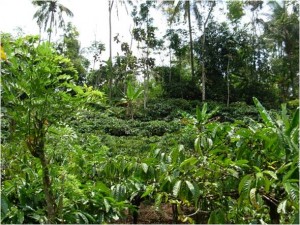December 2, 2011
Agrichemical Residue Troubles Indonesia Coffee Beans to Japan

Promar consultant Shinichi Kawae recently completed field research in Indonesia, where Promar is assessing pesticide residue levels on the country’s coffee crop. Indonesia is the third largest exporter of coffee beans to Japan behind Brazil and Colombia. However, since the Ministry of Health, Labour and Welfare of Japan (MHLW) detected Carbaryl in excess of Japan’s MRL for the chemical, Japan has banned Indonesian coffee bean imports from entering the country.
Although the Indonesian Ministry of Agriculture (MOA) and The Association of Indonesian Coffee Exporters (AICE or AEKI in Indonesian) have since prohibited the use of Carbaryl, news of that restriction has failed to spread to all growers. Unless and until the MOA and AICE can educate the entire industry, excess Carbaryl residue will continue to be an issue.
One problem for the MOA and AICE is that approximately 96% of coffee beans are harvested on small-scale farms in Indonesia. On these farms, pesticides are often used to kill a certain breed of ants which don’t damage the coffee but do bite growers’ hands as they pick the crop. To control the ants, farmers spray pesticides containing Carbaryl before the harvest.
The Ministry of Agriculture (MOA) has notified the state governments on prohibiting the use of Carbaryl on coffee plants. However, due to the poor communication between the government officials, many agriculture advisors and local farmers are not aware of this new regulation. An AICE office located in Lampung (one of the main coffee harvesting regions) has established training centres and they advise local farmers not to use products with Carbaryl. Education programs only address one side of the problem as there is presently no alternative for controlling the ants.
The Japanese industry association is pressuring the Indonesian government to resolve this issue. Currently, since Carbaryl is still used and sold in coffee harvesting sites, there is a need to continuously evaluate the agrichemical residue.
Photo: Coffee Production Site in Indonesia
